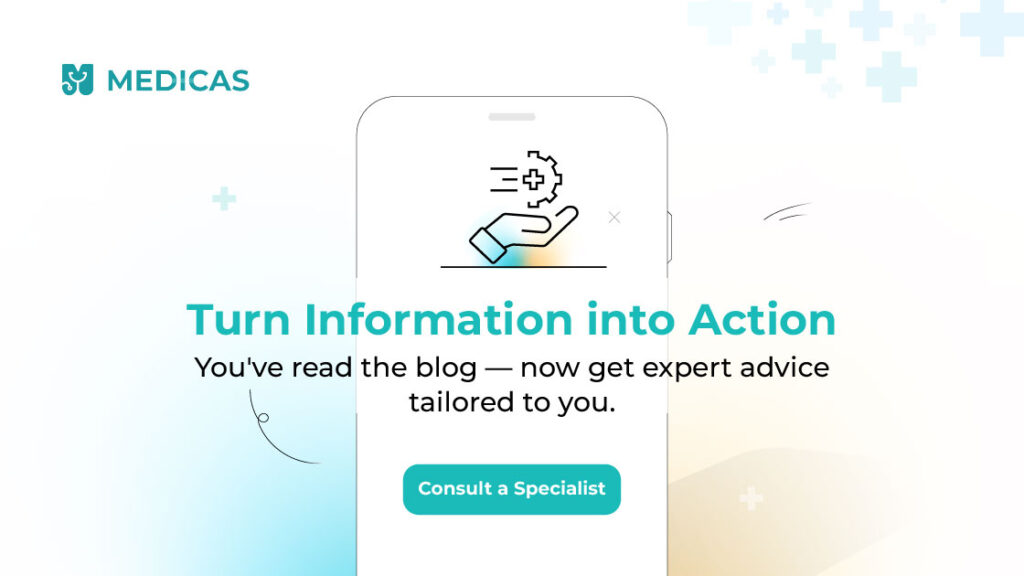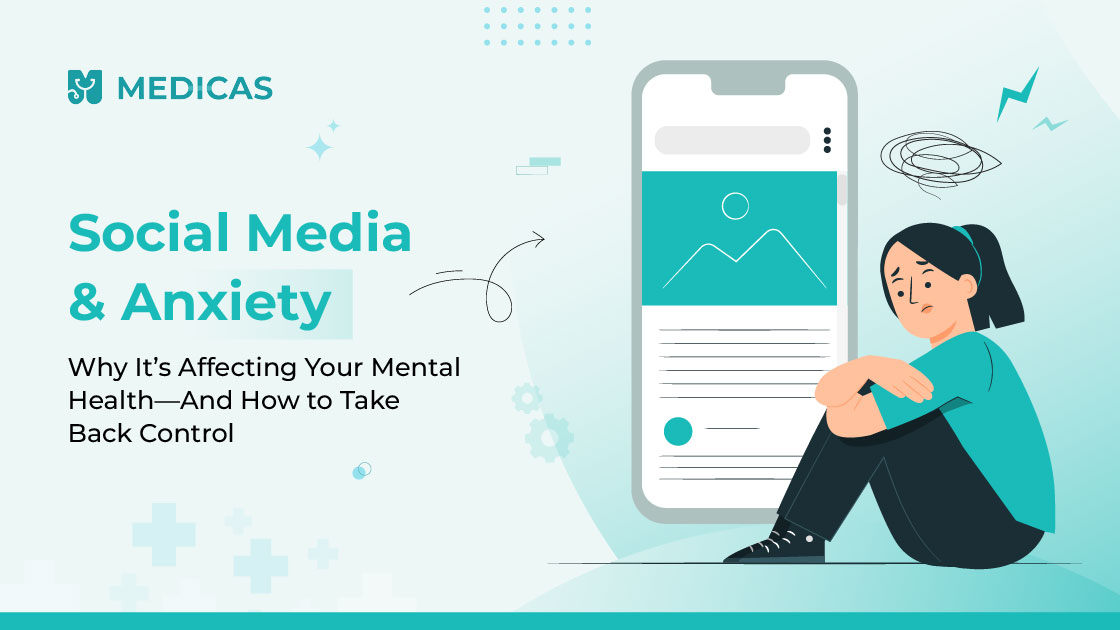In February 2025, Netflix dropped Adolescence, a raw, unflinching look at young adults wrestling with school, love, and life’s chaos. At first glance, it’s a coming-of-age tale—but peel back the layers, and it’s a chilling exposé of the effects of social media on mental health. The show isn’t just entertaining; it mirrors a crisis shredding young minds: the suffocating weight of online perfection, the relentless social media anxiety that gnaws at self-worth, the endless scroll that traps you in a restless haze. It’s a story that hits home—because we’ve all felt it, whether we admit it or not.
Today, social media and mental health are locked in a dangerous dance. With over 5.24 billion users worldwide as of January 2025—nearly 64% of humanity plugged in —the stakes are sky-high.
More alarming? Studies reveal that 90% of 18- to 29-year-olds log in daily, yet over 40% say it negatively impacts their well-being. This isn’t just a trend; it’s a wake-up call.
This blog explores the connection between social media and mental health—how it fuels anxiety, disrupts emotional balance, and quietly chips away at self-worth. More importantly, it offers practical, evidence-based strategies to set digital boundaries and reclaim control. Whether you’re a teen, a parent, or a professional feeling the digital overload, the insights here are for you. And if you’re overwhelmed, an Online Doctor Consultation can be a critical first step.
Understanding Social Media Anxiety
What Is Social Media Anxiety?
Social media anxiety refers to the stress, unease, or fear that arises from digital interactions—whether it’s the pressure to curate the perfect post, the fear of missing out (FOMO), or the emotional toll of constantly comparing yourself to others. Unlike general anxiety, this form is intrinsically tied to our online behavior and presence.
It’s not just about being online—it’s about being seen. And judged. Every like, comment, and view becomes a measure of worth. This constant digital exposure creates a feedback loop where individuals experience heightened anxiety from social media, especially when engagement doesn’t meet expectations. For those already prone to anxiety or low self-esteem, this can amplify symptoms and lead to compulsive behaviors like obsessive checking, doom scrolling, or digital withdrawal.
How Common Is It?
The social media impact on mental health is staggering. A 2022 study from the American Psychological Association found that 1 in 3 adults link increased anxiety to social media use, with teens reporting even higher rates. The question “does social media affect mental health negatively?” has a clear answer: yes, and it’s growing.
What Fuels It?
Comparison Culture Social platforms are built around comparison. People scroll through highlight reels—carefully curated, filtered snippets of other people’s lives—and end up feeling inadequate. This triggers comparison-based anxiety, a key contributor to poor social media and self-esteem balance.
Cyberbullying & Online Negativity Unlike in-person bullying, digital harassment is persistent, anonymous, and far-reaching. According to research by the Cyberbullying Research Center, over 59% of U.S. teens have experienced some form of online abuse. This type of hostility can lead to social media stress, depression, and withdrawal from both digital and offline communities.
Fear of Missing Out (FOMO) Seeing others attend events, achieve milestones, or lead seemingly perfect lives can make users feel isolated or “left behind.” FOMO is one of the top reasons why social media makes anxiety worse, especially among young users.
Pressure to Perform There’s an unspoken expectation to appear happy, successful, attractive, and popular online. This constant performative pressure—where every post is evaluated in real time—fuels scrolling anxiety and performance-based burnout.
Addictive Design & Dopamine Loops Social platforms are engineered to trigger dopamine hits, making them as neurologically addictive as slot machines. The instant gratification of likes and shares wires the brain for short-term validation, leaving users anxious when engagement drops.
The Psychological Impact of Social Media: Why we are addicted
Social media isn’t just habit-forming—it’s scientifically designed to trigger addictive behaviors that affect your mental health. With constant notifications, instant gratification, and emotionally charged content, platforms that serve short video content stimulate key brain pathways associated with reward and dependency.
Let’s break down the three key psychological triggers fueling this cycle:
- Dopamine and the Addiction Loop
Every like, share, or comment gives your brain a small hit of dopamine—a neurotransmitter that creates feelings of pleasure and reward. These small bursts of validation reinforce the urge to keep posting, scrolling, and engaging. Over time, this rewires the brain’s reward system, making social media behavior compulsive. When validation is delayed or absent, users may feel rejected, anxious, or even depressed.
- Fear of Missing Out (FOMO)
Social media showcases curated highlights of other people’s lives—vacations, accomplishments, perfect relationships—which can fuel FOMO. This constant exposure makes users question their own lives, leading to dissatisfaction, envy, and heightened social media stress. The result? A compulsive need to stay updated to avoid “missing out”—which ironically causes greater emotional burnout.
- Sleep Disruption
Late-night scrolling might feel harmless, but it has measurable effects on mental health. The blue light from screens suppresses melatonin production, delaying sleep. On top of that, emotionally charged or anxiety-inducing content keeps the brain alert, making it harder to wind down. Poor sleep, in turn, exacerbates symptoms of anxiety and depression, creating a harmful feedback loop.
| Trigger | How It Works | Mental Health Impact |
| Dopamine Feedback Loop | Likes and comments release dopamine, reinforcing behavior and creating compulsive usage patterns. | Social media addiction, anxiety, depression |
| FOMO (Fear of Missing Out) | Exposure to idealised lifestyles creates anxiety about being left out or falling behind. | Low self-esteem, stress, envy, loneliness |
| Sleep Disruption | Screen time at night delays melatonin release and disrupts circadian rhythms; anxiety-inducing content activates the brain. | Insomnia, fatigue, increased anxiety and emotional reactivity |
3 Signs of Social Media-Induced Anxiety
In a hyperconnected world, the signs of digital distress often go unnoticed—masked by memes, filtered photos, and the dopamine rush of notifications. But beneath the surface, social media-induced anxiety is quietly growing. It creeps in subtly, often disguised as “just needing a break,” when in reality, it’s a sign that your relationship with social media may be harming your mental health.
Spotting these signs early is key to knowing when you may need a digital detox or a shift in your digital boundaries. Here’s how to identify if your online habits are quietly undermining your well-being.
- Emotional Indicators
- Restlessness or irritability after scrolling.
- Sadness or envy from online comparison and anxiety.
- A nagging social media anxiety after posting or checking likes.
- Behavioral Signs
- Compulsively checking notifications—a key social media addiction symptom.
- Neglecting offline duties or relationships.
- Withdrawing from real-life interactions for digital ones.
- Physical Symptoms
- Headaches or eye strain from excessive screen time and anxiety.
- Disrupted sleep patterns, amplifying social media stress.
- Tension or fatigue is tied to prolonged use.
If you’d like to talk more about what you’re going through, you can consult me via Medicas for a confidential, one-on-one session.
5 Strategies to Protect Your Mental Health while using Social Media
Completely avoiding social media isn’t always realistic—but learning to engage with it in healthier ways is essential. When used mindfully, social platforms can be tools for connection rather than sources of stress. This section outlines five practical, evidence-based strategies to help you reduce social media anxiety, set digital boundaries, and protect your mental well-being in a hyperconnected world.
- Set Time Limits
Use app timers to cap daily use—think 30 minutes instead of hours. It’s a simple mental health tip for social media users to curb scrolling anxiety.
- Curate Your Feed
Unfollow accounts that spark negativity and follow ones that uplift. The New York Post suggests this tweak can transform your social media and self-esteem experience.
- Digital Detox
Schedule a social media break—a day, a weekend, or longer. Wikipedia notes that a digital detox boosts focus and calm, with social media break benefits like reduced anxiety.
- Mindful Engagement
Shift from passive scrolling to purposeful interaction. Comment on a friend’s post or share a thoughtful story—mental health protection online thrives on meaning.
- Seek Support
If social media anxiety overwhelms you, talking to a licensed professional who is equipped to help you navigate the delicate world of social media while also protecting your mental health is key. If you’d like to speak with me, you can consult me via Medicas.
Leveraging Social Media Positively
While much of the conversation around social media focuses on its negative impact, it’s important to remember: social media isn’t inherently harmful. The key lies in how we use it. With the right mindset and digital habits, social platforms can serve as tools for connection, education, and emotional support—instead of sources of stress.
By curating your online experience with intention, you can transform your feed into a space that uplifts your mental health rather than undermines it. Here are a few practical ways to use social media in a more positive, mindful way:
- Join Supportive Communities: Groups like those on The Jed Foundation offer mental health and social media support, connecting you with others who get it.
- Educational Content: Follow pages with mental health tips for social media users or personal growth insights—turn your feed into a learning tool.
- Share Mindfully: Post about your social media break benefits or struggles. Sharing authentically builds community and eases social media stress.

Conclusion
From the dopamine-driven highs to the FOMO-fueled lows, the social media impact on mental health is undeniable, especially for anxiety. Can quitting social media improve anxiety? Often, yes, but even small shifts work wonders. Assess your habits: Are you scrolling mindlessly or connecting meaningfully? Try these mental health strategies in the digital age—set social media boundaries for mental wellness, take a digital detox, or lean on offline joys. Social media is a powerful connector, but your well-being deserves priority. Start today—your mind will thank you.
For more information on how exactly social media could be affecting your mental health, you can also watch this podcast by Psychiatrist Dr. Hamza Hussain.
Frequently Asked Questions about Social Media Anxiety
- How does social media affect mental health?
Social media can increase anxiety, depression, and feelings of inadequacy by fostering constant comparison, FOMO, and addictive usage patterns. - What are the signs of social media anxiety?
Common signs include restlessness after scrolling, compulsive checking, feeling envious or low, sleep disturbances, and neglect of offline relationships. - Can quitting social media reduce anxiety?
Yes, many studies show that taking a break or reducing usage significantly lowers anxiety levels, improves mood, and enhances overall well-being. - What is a digital detox and how can it help?
A digital detox involves taking a break from digital devices and social media. It helps reduce stress, improve focus, and restore mental clarity. - How can I use social media without harming my mental health?
Set time limits, curate your feed, follow positive accounts, engage mindfully, and take regular breaks. Seek support if needed. - How do I set boundaries for social media usage?
Set daily time limits, avoid using social media during meals or before bed, and designate screen-free zones or times in your routine. - Can therapy help with social media anxiety?
Yes, therapy can help address underlying emotional triggers, build healthier habits, and manage anxiety linked to social media use. - How can I create a healthier relationship with social media?
Curate your feed to include positive content, engage intentionally, take regular breaks, and reflect on how your usage affects your mood. - Are there any apps to help with social media addiction?
- Yes, several apps can help reduce social media dependency by tracking usage, setting limits, and encouraging mindful digital habits. Digital Detox allows users to take scheduled breaks from their phones and improve focus. YourHour, an India-based app, tracks daily phone usage, provides addiction levels, and encourages healthier usage patterns. Digital Wellbeing, developed by Google and pre-installed on many Android devices, offers tools like app timers and focus mode. Another effective option is StayFree, which provides in-depth usage statistics and allows users to block distracting apps. These apps support users in creating a healthier relationship with technology and social media.
Related Blogs
Disclaimer
Medical Advice: The information provided in this blog post is for educational purposes only and should not be considered as a substitute for professional medical advice, diagnosis, or treatment. Always consult with a qualified healthcare professional for personalized guidance regarding your specific medical condition.
Accuracy of Information: While we strive to provide accurate and up-to-date information, the field of medicine and viral fevers is constantly evolving. The content in this blog post may not reflect the most current research or medical guidelines. Therefore, it is advisable to cross-check any information provided with reliable sources or consult a healthcare professional.
Individual Variations: The symptoms, causes, treatment options, and preventive measures discussed in this blog post are general in nature and may not apply to everyone. It is important to remember that each individual’s situation is unique, and personalized medical advice should be sought when making healthcare decisions.
External Links: This blog post may contain links to external websites or resources for additional information. However, we do not endorse or have control over the content of these third-party websites. Accessing these links is done at your own risk, and we are not responsible for any consequences or damages that may arise from visiting these external sources.
Results May Vary: The effectiveness of treatment options or preventive measures mentioned in this blog post may vary from person to person. What works for one individual may not work the same way for another. It is essential to consult with a healthcare professional for personalized advice tailored to your specific needs.



